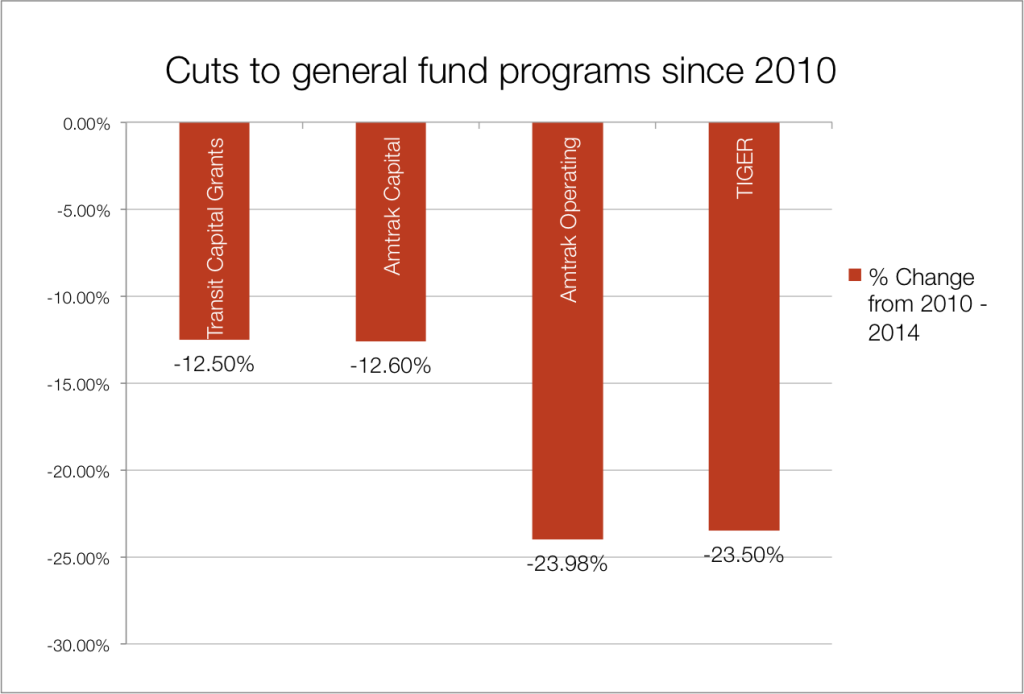Budget deal avoids automatic cuts; focus shifts to appropriations committees
Barring a successful rebellion within one party or the other, it looks like Congress may have the first bipartisan budget agreement since 2010. That is good news for the economy, and it is especially welcome where transportation infrastructure is concerned.
Through a combination of fee increases, spending cuts, and other changes, the deal allocates nearly $63 billion to offset “sequestration” cuts – by half this year and about a quarter in fiscal 2015 – and to reduce the deficit by $23 billion. Most importantly for transportation, it provides the appropriations committees with the authority to adjust the funding levels within the new overall cap.
This flexibility opens the possibility of restoring cuts to transit construction projects under New Starts, to the oversubscribed program of competitive grants under TIGER and to Amtrak. Those programs faced cuts of at least 7 percent this year, on top of previous cuts.
The deal also includes a “reserve account” for infrastructure that gives Congress and authorizing committees permission to spend more on transportation and other infrastructure, provided they can pay for it either through cuts elsewhere or increased revenue – by, say, raising the gas tax. This is good news, because, while it by no means guarantees positive action, the agreement at least indicates bipartisan acknowledgment that more investment in transportation may be warranted.
As we have explained in this space before, relying only on existing revenue from the federal gas tax would lead to massive cuts to highway and transit projects starting next fall.
That’s why we at Transportation for America are rallying local elected, business and civic leaders from around the country to a realistic proposal to raise and invest additional revenue. While one simple route would be to raise the federal gas tax to match inflation since the last increase in 1993, there are other, readily doable avenues available, as our proposal shows.
Raising an additional $30 billion per year – at roughly the cost per commuter of a doughnut and a coffee a week – would allow us to stabilize funding for the MAP-21 program Congress adopted last year and protect all modes of transportation – including New Starts, TIGER and Amtrak – from draconian budget cuts. At the same time, we could spur the innovation our economy needs to meet population growth and rising demand by funding competitive grants to local communities that come up with smart solutions.
The budget deal offers a glimmer of hope that members of both parties will understand what is at stake if transportation funding continues to be radically unstable. We hope that Congress can continue to work in a cooperative, bi-partisan fashion to address key needs like the impending insolvency of our federal transportation program.





















Pingback: Oregonians Less Interested in Bigger Highways, More Excited for Bike/Ped | Streetsblog.net
Pingback: Budget Deal Is Good News for Transit | Streetsblog Capitol Hill